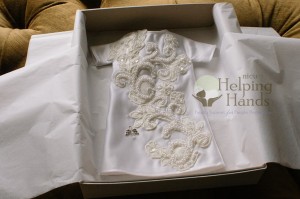“In order to have a society in which public issues can be openly and vigorously debated, it is not necessary to allow the brutalization of innocent victims.”
– Supreme Court Justice Samuel Alito
This blog will first explore the premise behind, Lois Tyson’s psychoanalytic criticism of “The meaning of death.” Then the post will explore the false dichotomy that has now been created by the United States Supreme Court’s in the decision in Snyder v Phelps, et.al. Lastly, the post will explore why I believe the sovereignty of the country has been compromised by this recent U.S. Supreme Court decision through the lens of the surviving sibling.
THE MEANING OF DEATH
Louis Tyson is his excerpt The Meaning of Death talked about psychological scars that could be created when a person in early childhood loses a sibling; and how later in life the guilt, denial, and conflict may flood open (1999) causing psychological imbalances. Tyson mentioned that the flood gates could open due to a person’s inability to repress their deep emotions. He further pointed out that the subject of death is difficult to discuss and often ignored in society. The excerpt also noted that the circumstances surrounding the death could also play an integral role in the development of a person’s psychological drive.
Tyson mentioned Freud’s “death drive” theory in an effort to point out the fundamental flaws earlier theorists had on the subject of wanting to study people’s emotions related to the subject of death. He thought the death drive theory was a flaw, because Freud was only studying the self-destroying behavior, and not the underlying emotions to bring a person a state of grief. It was this flaw, which brought Tyson to view Freud’s theories on death as a mere abstraction to his own thoughts on the subject (1999).
What was fascinating and relevant about Tyson’s excerpt, was the comment, “One of the greatest comforts religious belief can offer us is to assure us that we will not die alone and that after we die we will not be alone; God the Father will be there for us and with us; our Heavenly Father will not abandon his children even when everyone else we know has done so” (1999, pp. 24-25). Tyson did not mention that God would prejudice anyone from entering heaven. This comment will be connected to the aforementioned Supreme Court case. Another important insight Tyson mentioned was the fascination people have of death and media and how someone would use said fears to project individual fears and problems onto others (1999). This comment will also be tied into the Supreme Court decision.
SNYDER V PHELPS, ET. AL.
On March 2, 2011 the U.S. Supreme Court in an 8-1 decision voted the protestors at a military funeral (more specifically a homosexual military funeral) are protected under the First Amendment of the Constitution — Congress shall make no law respecting an establishment of religion, or prohibiting the free exercise thereof; or abridging the freedom of speech, or of the press; or the right of the people peaceably to assemble, and to petition the Government for a redress of grievances. The protestors in the suite are from Westboro Baptist, a church, in Topeka, Kansas, who for years traveled around the country and picket “certain” military funerals. The members of the church would inform police of their intent and stand the requisite footage as per the 2006 Respect of American Fallen Hero’s Act. In the process they would hold signs to the effect: “Thank God for Dead Soldiers,” “Fags Doom Nations,” “America is Doomed,” and “You’re Going to Hell” (Snyder v. Phelps, et al., 2011). These protestors’ signs relate the opposite message, Tyson brought up about an individual dying and being welcomed by God in the afterlife. The signs also convey the message that the person deserved to die because of their sexuality.
I agree with the lone dissenting opinion of, Justice Samuel Alito when he wrote, “Our profound national commitment to free and open debate is not a license for the vicious verbal assault that occurred in this case” (Snyder v. Phelps, et al., 2011). Nevertheless, just because one has the freedom to use speech does not mean one should excerpt such freedoms. For example, ninety-two years ago, on March 03, 1919 in Schenck vs. the United States, the Supreme Court ruled that it is a crime to falsely yell, “FIRE” in a crowded theater, because of the dangers presented thereof to the patrons (Schenck v. United States, 1919).
Additionally, in connection with Tyson’s psychoanalytic thoughts, the funeral protests are usually covered on local media; with the exception of the Snyder case. This media coverage from the point of view of the church could be looked at as a positive way to exploit the fallen homosexual solider, spread God’s message, and to recruit other members. If any of these points are the motivation of this particular church, then Tyson’s argument regarding death and media coverage has been validated.
I further believe that this appalling decision will create a false dichotomy between the Westboro protestors and the family members of the fallen soldiers, especially the surviving sibling. I think this because right now the surviving family members according to the S.C. Court have to tolerate the protestors at the funeral at one of the worst moments in their lives. It is false because a grief stricken family member may believe that they have a third option. Said third option would be to use violent force such physical assault or deadly weapons. The highest court has ruled that the Constitution will not protect the memory and integrity of the fallen, distressed family members, especially siblings may take matters into their own hands.
CONCLUSIONS
There is no denial that when a person is grieving the loss of a loved one they go through five stages of grief – shock, anger, depression, denial, acceptance. Every person’s grief is different and there is no correct order or time frame to pass through the stages. Usually, shock, anger, and depression are flowing through a person’s insides at the funeral. The last thing someone needs mentally or physically is for protestors to trigger a “hot button” and keep them in the anger phase. To me, this is the most societal detrimental phase. When a person is angry their stress levels increase and affect their health and heart. They could also be more prone to violent acts on other’s as their thinking and reflexes are impaired.
The surviving sibling, who more than likely is not receiving the same emotional support as the parents, may decide to lash out against the protestors, as they themselves are experiencing a tidal wave of new emotions. Conversely, the surviving sibling may also be a minor who lacks the developmental capacity to understand why anyone would protest their fallen brother or sister that died trying to protect the rights of every American citizen. This theory is relative to Tyson’s psychoanalytic work on the meaning on death, and why some adult’s years later find themselves coping and dealing with traumatic events of their childhood.
The U.S. Supreme Court should be ashamed for allowing the injustice of protecting the protestors and allowing them to spew the negative energy at military funerals. Society is once again neglecting a sibling in a time of grief and failing to recognize how dangerous it is to keep a person in the anger stage of bereavement.
The United States is a litigious society. With that stated I do agree that the father of the fallen solider should not have been awarded millions for the emotional distress of the protestor’s. Such a ruling would have opened a Pandora’s box of lawsuits for any insult stated. On the other hand, like the freedom to shout “Fire” has been taken away by the Supreme Court and other phrases such as saying “bomb” when on an airplane, and/ or spray painting a Nazi Swastika on a synagogue are illegal (Anti-Defamation League) so too should it be illegal to protest a funeral. What is clear is that the protestors’ mens rea is to disturb the memory of the fallen and the mourners therein while spreading what they perceive to be the “correct” message from God. This negative willful intent on the part of the protestors should have been enough for the U.S. Supreme Court to rule that this First Amendment freedom of speech needs to be repressed at funerals.
All American citizens regardless of their race, religion, or sexual origin deserve to be buried in peace, surrounded by family and friends who love and will miss them. People need to stop standing on soap boxes and attracting media attention for every little agenda they have. Is this Supreme Court ruling going to lead to protests at other funerals, for example, accidental overdoses? Conversely, what is going to happen psychologically years from now to the surviving minor sibling that had to witness such an atrocity at their older siblings’ funeral? This is a horrible decision that strips the moral integrity of our fall soldiers while simultaneously protecting written “hate speech.”
By Robyn F. Gabe, © February 24, 2011
REFERENCES
Schenck v. United States, 249 U.S. 47 (U.S. Supreme Court March 03, 1919).
Snyder v. Phelps, et al., 09 U.S. 751 (U.S. Supreme Court March 02, 2011).
The United States Constitution, First Amendent – Freedom of Religion, Press, Expression. (Ratified 12/15/1791).
Tyson, L. (1999). Critical Theory Today: A User Friendly Guide. New York & London: Garland Publishing, Inc.



